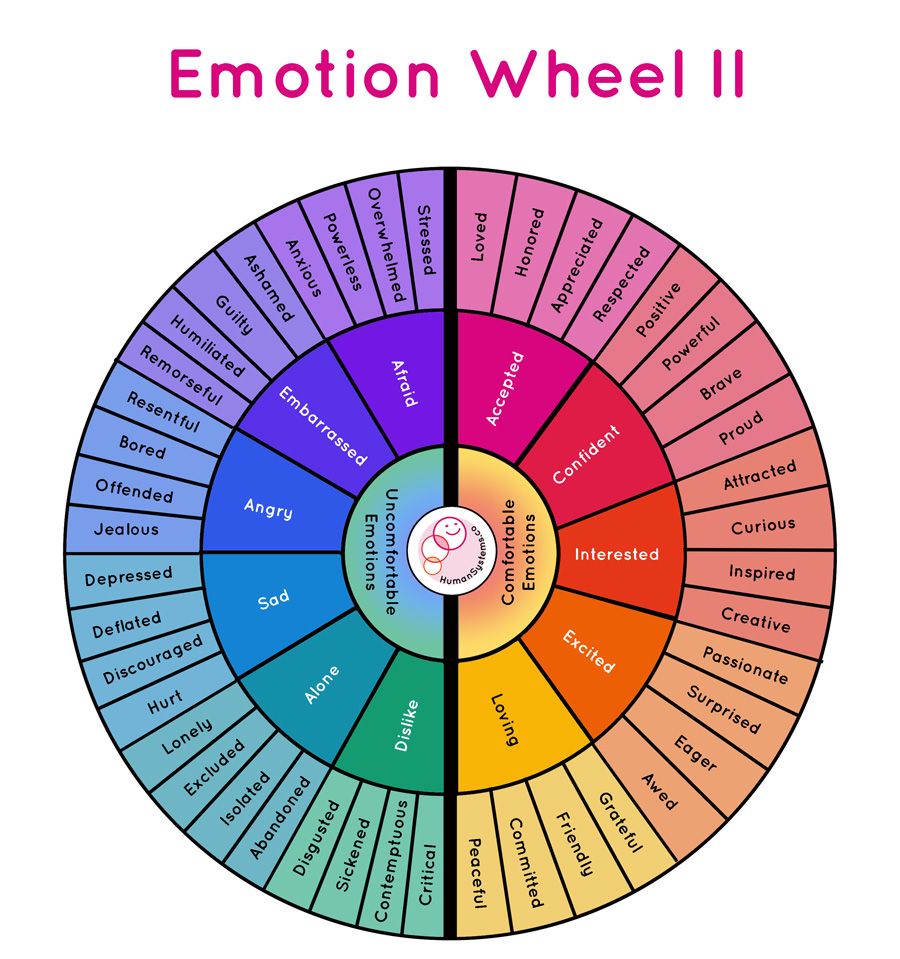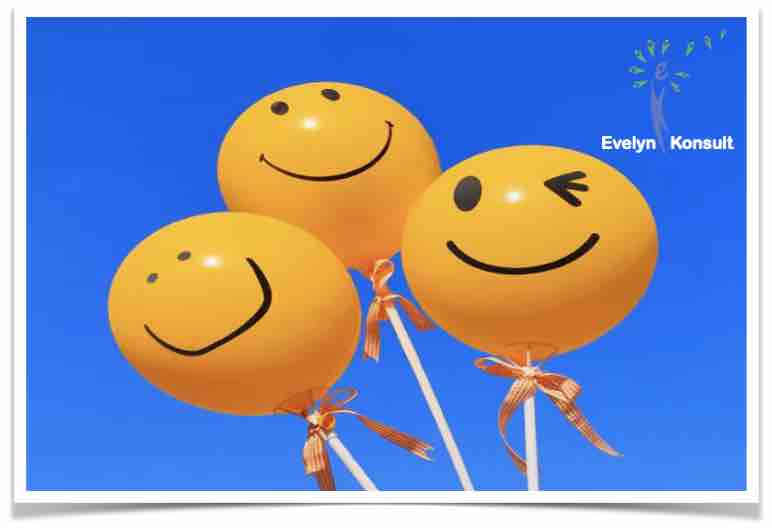The Impact of Positive Emotions on Decision-Making
Evelyn Tian
Guess how many decisions do we make approximately per day?
Explore how to make better decisions for yourself and how to support your teams to make better decision.
The nature of our life is determined by the decisions we make. Every decision we make, makes us.
Explore how to make better decisions for yourself and how to support your teams to make better decision.
The Impact of Positive Emotions on Decision-Making
Before we dive into the impact of positive emotions, let's first take a look at decision-making.
Decision-Making
Guess how many decisions do we make approximately per day?
Well, only 35,000:-) What, 35,000:-)
While you were browsing different contents on LinkedIn, or google search, you were making a lot of decisions. Which topic do you want to explore more? Should you continue reading this blog? What can you take a way from what you read so far? Your friends is calling you for lunch. Do you join them now or do you continue? How many minutes should you tell them to wait?…
Decision-Making
Guess how many decisions do we make approximately per day?
Well, only 35,000:-) What, 35,000:-)
While you were browsing different contents on LinkedIn, or google search, you were making a lot of decisions. Which topic do you want to explore more? Should you continue reading this blog? What can you take a way from what you read so far? Your friends is calling you for lunch. Do you join them now or do you continue? How many minutes should you tell them to wait?…
The nature of our life is determined by the decisions we make. Every decision we make, makes us.
Decisions are always an attempt to cause a desired future. For instance, you decided to join your friends for lunch as you want to be part of them and catch up with them; Decisions are always an attempt possibly as well to prevent an unwanted one. An example can be, you were almost deciding to join your friends for lunch, and you all of a sudden noticed that Devil is also joining and you really don’t want to hear him taking over the whole lunch conversation.
So the good news for me is - you decided not to join, and continued to read my blog about emotions and decision-making.
Now let's talk about emotions and positivity.
So the good news for me is - you decided not to join, and continued to read my blog about emotions and decision-making.
Now let's talk about emotions and positivity.
Unlocking the Power of Positivity
Our alumni from leadership, professional coaching, and Scrum Master programs often express pleasant surprise at the discussion, practices, and tips surrounding energy and emotions.
This focus underscores a fundamental truth: We are, at our core, emotional beings. Emotions are the silent architects of our daily lives, deeply influencing not just what we do, but how we do it.
From the moment we wake up to the time we go to sleep, our emotional state plays a pivotal role in navigating the myriad decisions we face. Whether it's choosing what to wear based on our mood, or deciding to take on a challenging task at work because we feel motivated, emotions are at the heart of these decisions.
This focus underscores a fundamental truth: We are, at our core, emotional beings. Emotions are the silent architects of our daily lives, deeply influencing not just what we do, but how we do it.
From the moment we wake up to the time we go to sleep, our emotional state plays a pivotal role in navigating the myriad decisions we face. Whether it's choosing what to wear based on our mood, or deciding to take on a challenging task at work because we feel motivated, emotions are at the heart of these decisions.
In addition, emotions color our behaviors in nuanced ways. When we're joyful, our interactions with others might be more open, collaborating and engaging. Conversely, feelings of disappointment could lead us to act more defensively or withdraw from social interactions or collaboration. This dynamic interplay between emotions and behavior is a dance we all partake in, often subconsciously.
The words we choose are another avenue through which emotions manifest. Anger might sharpen our words into weapons, while happiness can turn them into bridges that connect us to others. Our tone, the pace of our speech, and even the pauses we take are all subtly shaped by our emotional state, affecting how our messages are received and interpreted by those around us.
The relationship among our emotions, behaviors and our words operates within a dynamic, interactive loop, profoundly influencing not just our own emotional states but also those of the people around us. This interplay extends beyond mere personal impact, creating ripples that can affect the emotional landscape of entire groups or environments.
The words we choose are another avenue through which emotions manifest. Anger might sharpen our words into weapons, while happiness can turn them into bridges that connect us to others. Our tone, the pace of our speech, and even the pauses we take are all subtly shaped by our emotional state, affecting how our messages are received and interpreted by those around us.
The relationship among our emotions, behaviors and our words operates within a dynamic, interactive loop, profoundly influencing not just our own emotional states but also those of the people around us. This interplay extends beyond mere personal impact, creating ripples that can affect the emotional landscape of entire groups or environments.
Now if you try to think about a colleague or a friend who keeps sighing next to you, and reflect about their behaviours, and the influence on you. I don't want you to just land on that emotion - so now think about something that truly made you happy during the past hours. I am not seeing you but I am sure you feel lighter and there is most likely a smile on your face.
Write your awesome label here.
Understanding Emotions
Emotions can generally be categorized into two types: positive and negative.
A wealth of research underscores the cognitive benefits of positive emotions. So if you are as curious as I am, most likely you want to dive into the topic of emotions even more after you read this blog. For now, let's have an overview.
Emotions such as joy, excitement, inspiration, and love not only energize and contribute to overall happiness and activity levels but also with the following benefits that are key to decision-making.
The Role of Positive Emotions in Decision-Making
A wealth of research underscores the cognitive benefits of positive emotions. So if you are as curious as I am, most likely you want to dive into the topic of emotions even more after you read this blog. For now, let's have an overview.
Emotions such as joy, excitement, inspiration, and love not only energize and contribute to overall happiness and activity levels but also with the following benefits that are key to decision-making.
The Role of Positive Emotions in Decision-Making
Broadening Our Perspective
Research suggests that positive emotions broaden our attention and cognitive flexibility, enabling us to see a wider array of possibilities in a given situation.
This broadened perspective allows individuals to consider more alternatives and solutions, enhancing decision-making processes. For instance, someone in a positive emotional state might be more apt to notice opportunities in a challenge, whereas negative emotions could narrow their focus, making it harder to see beyond immediate problems.
This broadened perspective allows individuals to consider more alternatives and solutions, enhancing decision-making processes. For instance, someone in a positive emotional state might be more apt to notice opportunities in a challenge, whereas negative emotions could narrow their focus, making it harder to see beyond immediate problems.
Enhancing Creativity and Innovation
Positive emotions are closely linked to creativity, which is essential for innovative decision-making.
Feeling positive broadens our thought-action repertoires, encouraging divergent thinking—a style of thinking that generates creative and novel ideas. This can be particularly beneficial in complex decision-making scenarios where traditional solutions are ineffective, and innovative approaches are required.
Feeling positive broadens our thought-action repertoires, encouraging divergent thinking—a style of thinking that generates creative and novel ideas. This can be particularly beneficial in complex decision-making scenarios where traditional solutions are ineffective, and innovative approaches are required.
Improving Problem-Solving Skills
Positive emotions not only enhance creativity but also improve problem-solving abilities.
Individuals experiencing positive emotions are more likely to adopt an efficient and flexible approach to problem-solving, which can lead to more effective decision-making. They are also better at integrating information and adapting their strategies as needed.
Individuals experiencing positive emotions are more likely to adopt an efficient and flexible approach to problem-solving, which can lead to more effective decision-making. They are also better at integrating information and adapting their strategies as needed.
Increasing Resilience and Recovery
Decision-making often involves navigating uncertainties and setbacks.
Positive emotions contribute to resilience, helping individuals bounce back from failures and continue pursuing their goals. This resilience is crucial in the decision-making process, as it enables individuals to maintain a constructive outlook, even in the face of difficulties, and to make decisions that are aligned with long-term objectives rather than short-term emotional reactions.
Positive emotions contribute to resilience, helping individuals bounce back from failures and continue pursuing their goals. This resilience is crucial in the decision-making process, as it enables individuals to maintain a constructive outlook, even in the face of difficulties, and to make decisions that are aligned with long-term objectives rather than short-term emotional reactions.
Fostering Social Connections
Positive emotions have a social component that can enhance decision-making.
They promote social interactions and help build strong, supportive relationships. These connections can provide valuable feedback, diverse perspectives, and collaborative opportunities, all of which can inform and improve the decision-making process. Moreover, the sense of belonging and support derived from positive social interactions can bolster confidence in one's decisions.
They promote social interactions and help build strong, supportive relationships. These connections can provide valuable feedback, diverse perspectives, and collaborative opportunities, all of which can inform and improve the decision-making process. Moreover, the sense of belonging and support derived from positive social interactions can bolster confidence in one's decisions.
Facilitating Long-Term Thinking
Positive emotions can encourage long-term thinking and goal-oriented decision-making.
When we feel good, we are more likely to consider the future implications of our decisions and to choose options that contribute to our long-term wellbeing and success. This contrasts with the short-term focus often induced by negative emotions, where immediate relief or avoidance of discomfort might overshadow longer-term considerations.
When we feel good, we are more likely to consider the future implications of our decisions and to choose options that contribute to our long-term wellbeing and success. This contrasts with the short-term focus often induced by negative emotions, where immediate relief or avoidance of discomfort might overshadow longer-term considerations.

Application in Agile Context and Workplace
Let's try to picture a conversation, which is something I heard often during initial mentoring sessions for ScrumMasters.
"We failed this sprint. We finished 4 user stories, and we had to take the other 4 user stories into the next sprint."
What emotions does the word "failed" bring? How does a person feel when they are saying "I had to..."?
Here is an emotion wheel (reference). Please mark down the emotions you have when you heard the above conversation, or you were the one who just said the above statements.
"We failed this sprint. We finished 4 user stories, and we had to take the other 4 user stories into the next sprint."
What emotions does the word "failed" bring? How does a person feel when they are saying "I had to..."?
Here is an emotion wheel (reference). Please mark down the emotions you have when you heard the above conversation, or you were the one who just said the above statements.

Now hear this again. "We finished 4 user stories that helped increase user engagement with our app. We had 4 partial completed user stories with the focus of user engagement as well. Let's take a look and see how we can improve our next sprint based on this sprint's experience."
Again, try to use the emotion wheel, and mark down the emotions you have when you read the above paraphrased contents.
Again, try to use the emotion wheel, and mark down the emotions you have when you read the above paraphrased contents.

Start to Observe and Notice
Beginning to observe your emotions and their impact is a transformative practice that opens the door to deeper self-awareness and emotional intelligence.
This observation involves a deliberate and mindful examination of your emotional states, understanding not only what you feel but also why you feel a certain way and how these emotions influence your thoughts, decisions, behaviors, and interactions with others.
Positivity-fueled emotions—such as compassion, peace, and joy—do not distort reality. They allow us to listen, feel, and act in ways that nurture growth, collaboration, hope, and deep connections.
Cultivating positive emotional states and environments can, therefore, be seen as a strategic approach to better decision-making in both personal and professional contexts.
Towards a New Paradigm of Decision-Making
The essence of my message so far, I hope, is clear.
Let's shift : We advocate for a paradigm shift in decision-making — one that consistently fosters excellent choices leading to new opportunities, innovative ideas, and fresh perspectives.
Decisions grounded in positivity not only pave the way to success, fulfillment, and satisfaction but also help us evolve into better versions of ourselves.
What's Next?
If you are interested in the topic, and are curious about how to learn about its application, practices and tips in workplace and supporting your agile teams, here is a list of options:
- Our Advanced Certified ScrumMaster (A-CSM) workshop helps ScrumMasters (or people holding similar roles, such as Scrum lead, delivery lead, etc.) to support teams while growing agile coaching competencies; and Certified Scrum Professional - ScrumMaster (CSP-SM) will help advance you to the expert level on this path;
- Our Certified Agile Leadership workshop helps you improve your self-leadership while support your teams and organizations.
- Our Certified Facilitator (CF) workshop for those of you who want to benefit from facilitation as an individual and grow your teams.
or
- Join our mailing list to read more of different tools, practices and tips.
- Our Certified Facilitator (CF) workshop for those of you who want to benefit from facilitation as an individual and grow your teams.
or
- Join our mailing list to read more of different tools, practices and tips.
Write your awesome label here.
Join our community
Thank you!
We have supported practitioners from 80 countries, and have monthly free activities for our community members.
You can bring any topics to our activities, or just get ready to network.
You can bring any topics to our activities, or just get ready to network.
Who we are
We are the training, coaching and consulting company that offer all your growth needs.
Get in touch
-
Evelyn Konsult AB
Stockholm, Sweden -
training@evelynkonsult.se
-
+46708883268
-
Affiliate Program
Copyright © 2026
Sign up to our newsletter!
Thank you!
Write your awesome label here.

